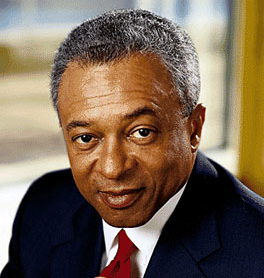Archive for November, 2010
The Entrepreneurial Virgin
When the word ‘entrepreneur ‘ is brought up, the first name that comes to my mind is Richard Branson, founder of Virgin Group. I believe that Richard Branson is one of the better representations of an entrepreneur. His accomplishments, skill, and experience are what make him a leading entrepreneurial figure.

Sir Richard Charles Nicholas Branson
Schumpeter placed emphasis on innovation when defining entrepreneurship, focusing on new products, new production methods, new markets, and new forms of organizations. Branson’s venture capital organization, Virgin Group Ltd., encompasses all of these ‘news’. From selling Christmas trees and birds to now owning a Formula One racing team, Branson’s Virgin Group really is everything. Its products include beverages, airlines, cosmetics, houseware, financial services, and obviously, music.

“On the one extreme an entrepreneur is a person of very high aptitude who pioneers change, possessing characteristics found in only a very small fraction of the population.”
I consider people like Richard Branson part of this small fraction. If you look at the Timeline of Richard Branson’s business ventures, you will see the diversity and success in his ventures. Like many other famous entrepreneurs, his adolescence foreshadowed his future career.
One thing that Branson stressed regarding entrepreneurs, is experience. I find it ironic that his brand, labeled Virgin, accumulated so much experience and is so successful.
In business, there is no substitute for experience. So if you’re an entrepreneur, get on with it. If you’ve achieved success in business, think about giving back to the community by mentoring some promising entrepreneurs. Who knows? They just might be the next Musa and Amos
Its ironic that his brand, labeled Virgin, accumulated so much experience and grew to what it is today.
Source:
http://www.entrepreneur.com/article/217567
http://www.quickmba.com/entre/definition/
The Paradise Crisis
In reference to my first blog post in September..
If you think Mark Hurd’s severance package was too much, take a look at these CEOs, or should I say ex-CEOs.
Stanley O’Neal, former CEO of Merrill Lynch, received a severance package worth $161.5 million.
Early in his tenure, O’Neal made few friends with his decision to fire upwards of 20,000 employees. By the time that the next bubble—the housing market—showed signs that it was ready to implode, he had even fewer allies left. In the third quarter of 2007, Merrill reported $2.24 billion in losses. The firm, which had billions of dollars’ worth of exposure to bad mortgages, was ultimately rescued by Bank of America.
Stanley O'Neal
Martin Sullivan, former CEO of AIG, received a severance package worth $47 million.
Insurer AIG, whose colossal struggles forced the government to step in with a massive rescue package, is one of the highest-profile examples of a company being run into the ground. The firm also earned a reputation for its overly generous executive compensation. Sullivan tapped into that, taking with him a package that at the time was valued at $47 million.
Martin Sullivan
The two of these men were CEOs of the major banks during financial crisis in 2007. While millions were finding themselves unemployed, some were finding themselves better off. I am still amazed at the way this system works. Both of these companies practiced high risk, sub-prime loaning which partly led to their downfall. In fact, Martin Sullivan was listed as, according to CNBC, one of the “Worst CEOs of All Time”.
A system like this may encourage a poor sense of responsibility in the top executives. From a very basic perspective, it is almost as if they do not have to clean up after their mess.
Whether or not something should be done about this, I will not question as I have no experience in large financial corporations like these. I have, however, gathered perspectives on this issue from older, more experienced sources. Some believe that this is unjust and reform is needed. I guess for now, I will side with the “reform is needed” opinion. After all, a title like “Worst CEO of all time makes $47 million” doesn’t make too much sense.
Sources:
http://money.usnews.com/money/business-economy/articles/2010/07/27/6-unpopular-ceos-who-still-collect-millions.html?PageNr=1

